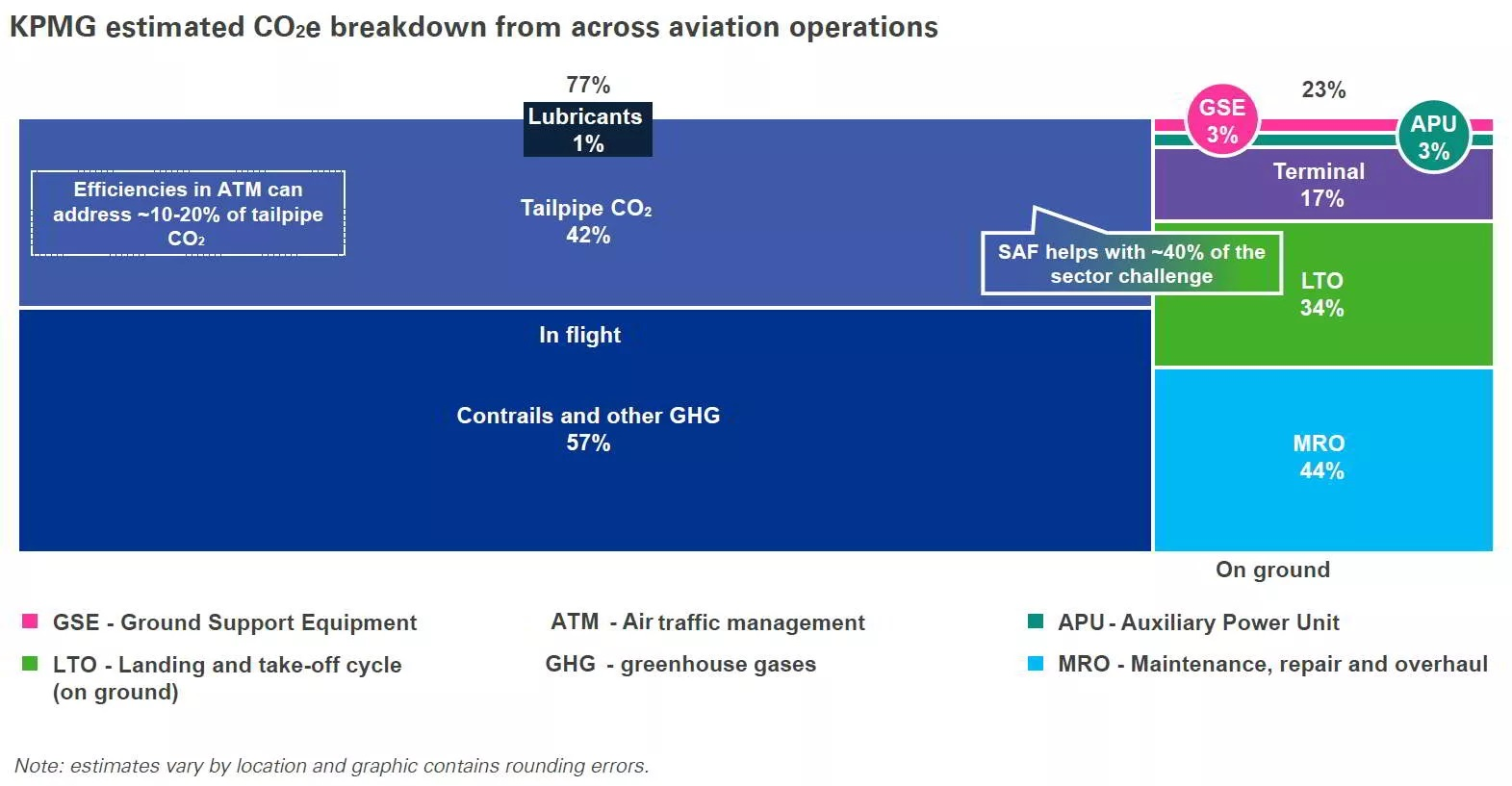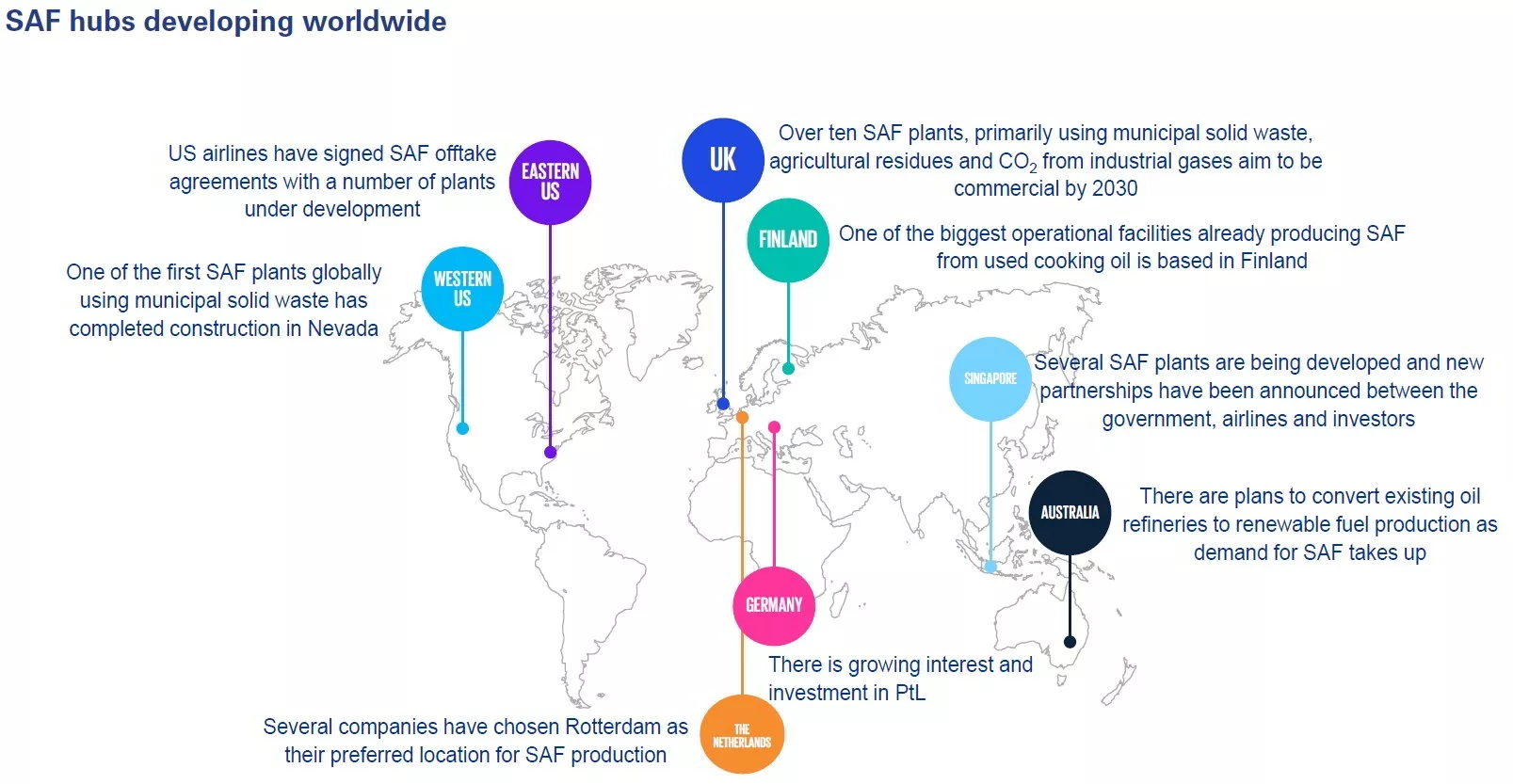With net zero by 2050 now an established objective for aviation worldwide, the sector faces a huge challenge to decarbonise.
At the 41st Assembly of the International Civil Aviation Organization (ICAO) in October 2022, states adopted a collective long-term aspirational goal of net zero carbon emissions by 2050. To put this ambitious vision into practice and quickly curb aviation emissions, expected to rise fast as the sector recovers from COVID-19 disruptions, ICAO, national governments, airlines and industry will need to work even closer to reduce the climate impact of both flying and associated ground operations.
A large share of aviation’s CO2 emissions arise from the combustion of kerosene, known as Jet A-1, in aircraft engines. To avoid this tailpipe CO2 completely a range of solutions, such as hydrogen or batteries, are possible – but these will require a full redesign of aircrafts and new refuelling infrastructure, and may therefore become widespread only after 2050.
Sustainable aviation fuel (SAF) is available today and can be used without the need to develop new planes or engines. These greener jet fuels seek to reduce the lifetime emissions of engine burn, acting as a drop-in fuel that can be blended in increasingly high proportions with conventional Jet A-1. However, the SAF type currently predominant (i.e. biofuels) faces real availability and scalability challenges, as well as supply chain bottlenecks and questions over the sustainability of feedstocks.
With these barriers in mind, our view is that power to liquid (PtL) synthetic fuel, obtained from low-carbon hydrogen and CO2, represents the most scalable product for use long term and a yet untapped solution for the aviation market. As PtL fuel is significantly more expensive than any other SAF, realising its potential cannot be achieved without major investment in electrolysis and carbon capture technology development and deployment.










